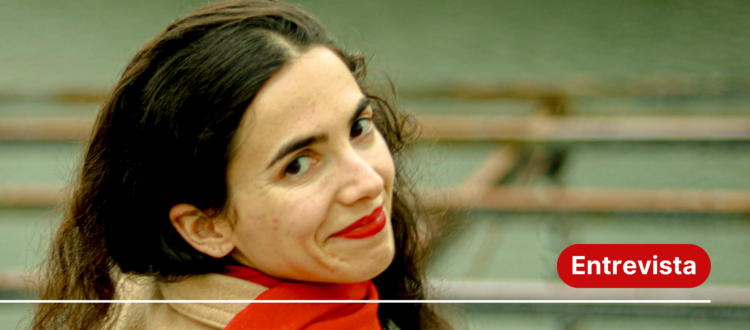À conversa com … #2 Júlia Durand
The 2nd episode of À conversa com… focuses on the work of Júlia Durand, awarded the 4th Honourable Mention in the Outstanding Dissertation Award 2024 of IMS.
À conversa com… presents a series of written interviews that highlight national or international awards given to CESEM researchers.
Question (Q): Your doctoral thesis ‘Tool, retail or wallpaper: catalog music in online audiovisual creation’ was honoured by the International Musicological Society (IMS) in the context of the Outstanding Dissertation Award. What does this award mean to you?
Answer (A): I had three reasons to be especially happy about the honourable mention. Firstly, it legitimises the study of a musical object that, until recently, was dismissed as being of little artistic and academic interest. It also represents a recognition of musicological research carried out in Portuguese in a global academic panorama leaning towards anglocentrism. The third reason is more personal. I had an absurd amount of fun with my doctoral research; therefore, I asked myself more than once if the lack of suffering was a sign of unserious work – maybe not.
Q: The subject of the award-winning thesis reveals one of your most significant interests when it comes to thinking about music: the production and use of catalog music in online videos. Your current research also explores the role of music in online media, particularly in political and disinformation contexts. Could you share a bit about these two topics, explaining what drew you to them as objects of study?
A: My interest in catalog music has always been drawn to its discreet sonic presence, to musical handicraft that goes unnoticed, and above all, to music created for imagined images. I have also come to appreciate that by staying within the realm of catalog music, I can explore different topics, such as musical stereotypes, genres and sexualities, music and time, and music and politics. That last question ties in with the subjects I have been exploring more recently (and whose interest and relevance will perhaps be more obvious): the music currently used in media with disinformation, fake news, and political extremism is often catalog music.
Q: Tell us about your relationship with CESEM, where you are currently an integrated researcher.
A: I had my first contact with CESEM in 2015, and the center supported my master’s and doctoral research. In the acknowledgements chapter of my thesis, I wrote: ‘Not wanting to incur the now frequent gaffe of calling host institutions “welcoming institutions”. Nevertheless, I can affirm with affection and pride that both terms apply to CESEM’. Two years later, with all the support the centre has given me in various post-doctoral adventures, I can say that this feeling has only strengthened.
Q: Since 2021, you have been teaching subjects related to music and media at NOVA FCSH, oscillating between the departments of Musical Sciences and Communication Sciences. What challenges do you experience? Do you think the topic captures students’ interest?
A: My experience so far as a lecturer has been incredibly fulfilling. The topics covered in Music, Media, and Digital Cultures, for example, aroused lively enthusiasm from the students, who also particularly valued the opportunity to develop original research on topics of interest to them, such as music in audiovisual media or on streaming platforms.Interestingly, the challenges – such as fragmented attention due to the consumption of different media or the application of artificial intelligence – could be discussed in class, as they were directly connected to the subject’s content.
Q: Any future projects – either as a musicologist or teacher or as a creator of vocal and musical theatre pieces, which you do in parallel – that you can share with us?
A: I am currently turning the thesis into a book, which has already been confirmed for publication with British publisher Bloomsbury. As for future projects, I am trying to find a way to reconcile the different types of writing that these activities entail: scientific writing, fiction writing, or writing for musical theatre. I think it is when these types of writing merge a little that the most joyful experiences emerge.
We will be following Júlia Durand’s journey closely. In the meantime, there will be other À conversa com…

